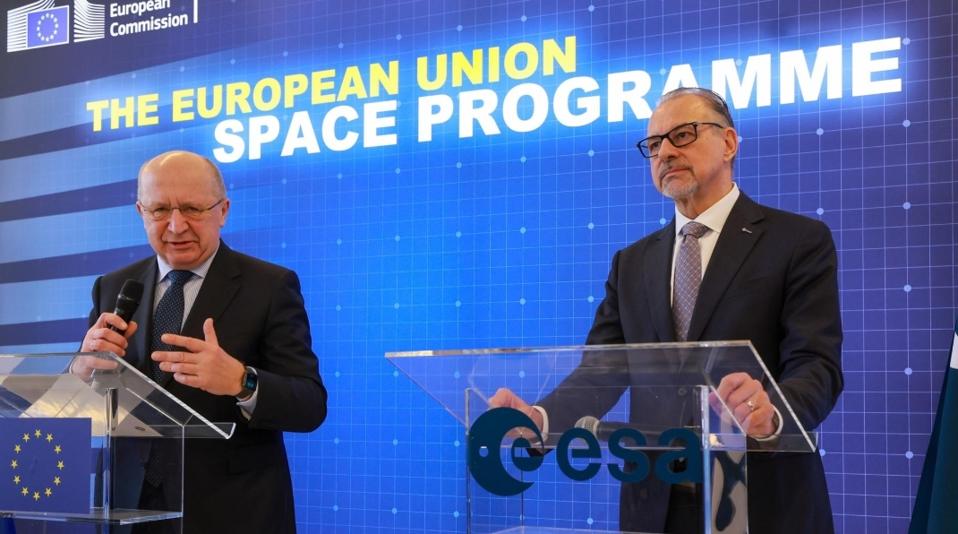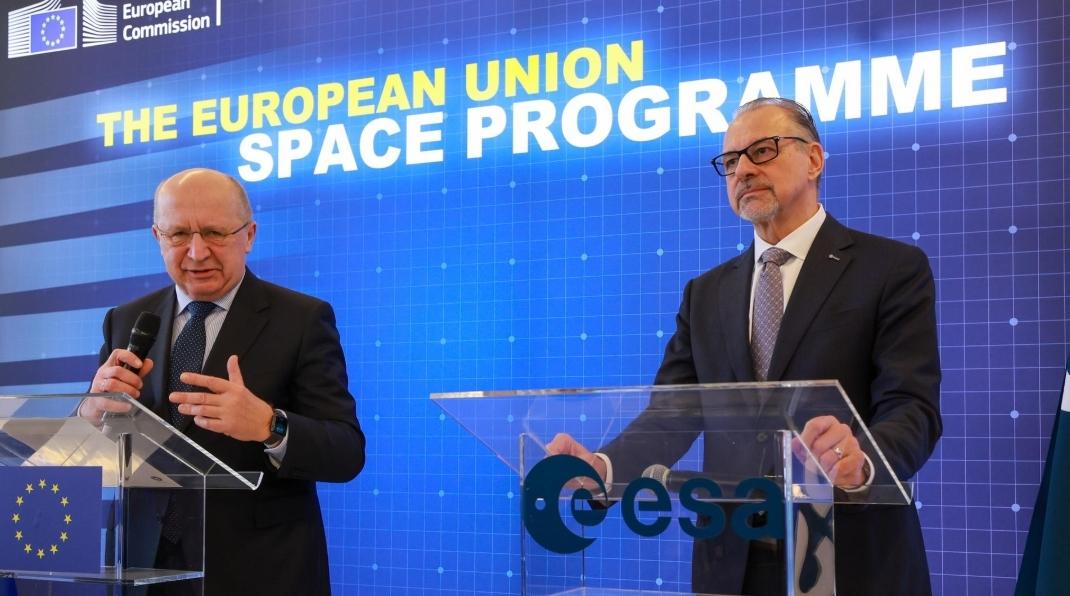
The EU’s Commissioner for Space and Defense, warns of the bloc losing influence in space as it expresses ambition to mine the moon and asteroids for resources.
EPA
Faltering energy security and unstable rare earths supply chains have prompted Europe to think creatively about securing its energy and strategic mineral supply. Brussels has decided to aim for the stars, literally, by putting its sights on the moon. In a European Commission report published on September 9th, the EU noted that to meet its energy needs, there may be a growing emphasis on advanced mining technologies, including space mining, which could start with the Moon.
While this may sound like sci-fi to many, space mining is not an entirely new concept to Europeans. In June of 2025, the EC unveiled its “Vision for the European Space Economy.” This document outlines Europe’s strategy to become a leader in space industrialization by 2050, with a significant focus on mining and extracting resources.
While European leaders look to mining the moon and asteroids to meet energy and mineral needs, these issues are pressing, and require solutions in the near term
NASA
As Europe works toward a green energy transition, innovative approaches such as extracting resources from space – if profitable – could provide the EU with a much-needed supply of critical minerals. If successful, Brussels could completely change the nature of energy security, and its program would also have profound geopolitical implications. A second space race is sure to be as contentious as the first. Moreover, plans for tomorrow cannot necessarily solve today’s problems, and overly ambitious and expensive technological programs cannot provide an escape hatch or serve as a cover for poor policy. Europe’s current woes are of urgent concern and should be addressed through coordination and practical energy policies, including domestic mining and cooperation with nearby countries. They cannot be solved by just shooting for the moon.
Europe’s Faltering Energy Security
Brussels’ desire to mine the Moon reflects its serious concerns about the resources needed to meet energy demand in the coming years. Europe’s energy security has become increasingly uncertain due to a combination of geopolitical crises and misguided policies.
Russia’s invasion of Ukraine caught the EU, which had been heavily focused on going green to the exclusion of practical work to diversify and better secure its near-term energy future, largely by surprise. In May 2025, fully three years after Moscow attacked Kiev, the EU issued its Roadmap to Fully End EU Dependency on Russian Energy, noting that the European share of Russian gas imports dropped from 45% to 19% in the interim. In other words, freeing Europe from dependence on Moscow’s energy supplies is still a work in progress.
Moscow is not Brussels’ only problem. Europe is still dependent on China for rare earth elements that are critical components used to produce EVs, laptops, smartphones and other technologies. The EU imports almost 100% of its rare earths from China. Meanwhile the continent lacks a domestic mining and refining infrastructure. This is particularly dangerous, as Beijing is already using export controls on critical minerals as a political tool.
Being caught between the resource-wielding powers of Russia and China is tough enough, but even in outer space, Europe will not be safe from competitors.
The New Space Race
The EU is certainly not the only party interested in pursuing an energy bonanza on the Moon. NASA is planning to build a nuclear reactor on the Moon by 2030. This is working in tandem with its Artemis program, which aims to construct a lunar base and establish a long-term human presence on the lunar surface.
The European Space Agency is but one competitor in the global space race, with competitors like China and the United States pursue their own lunar goals.
ESA
China and Russia are also planning to collaborate on a nuclear power plant on the Moon. Their joint venture, which will power a research center called the International Lunar Research Station, is scheduled for completion by 2035. Japan is also seeking to join the race and mine the Moon for valuable resources.
Europe’s pursuit of lunar mining reflects both its strategic need for energy independence and the broader global competition to secure extraterrestrial resources. While space mining is a relatively new frontier, it could bring significant benefits and reap substantial profits for those who venture forth boldly. However, it also involves many risks. Among other issues, it raises the complicated question of governance over energy supplies on a celestial body that is not part of any one country. The UN Moon Agreement calls for the creation of a governing body over lunar resource exploitation; however, no such body has been stood up. There are also safety questions around bringing uranium—and possibly other critical minerals—in and out of the earth’s atmosphere.
Energy Earthbound or Pie in the Sky?
Space mining ventures, while worth pursuing, are long-term efforts that can serve geopolitical goals beyond the energy sector, and while it is a compelling idea, moon mining is still a long shot.
Instead of focusing solely on space, Europe should also consider new deals to address its immediate collective energy needs. In July, Brussels signed a trade agreement with the United States, which included a commitment to purchase $750 billion in American energy through 2028 to replace Russian oil and gas. If Brussels can adopt a coherent, realistic, and forward-looking strategy around mining, perhaps it won’t need to gaze longingly at the Moon after all.
